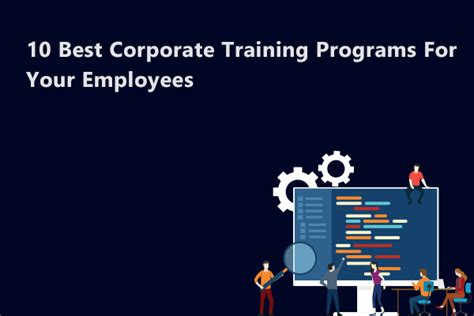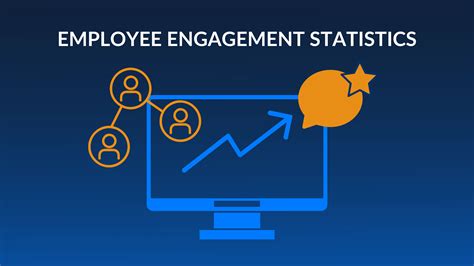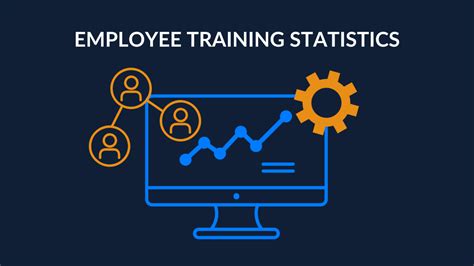In today’s rapidly changing world, lifelong learning has become essential for personal and professional growth. As the demands of the modern workforce evolve, staying updated with new skills and knowledge is crucial for success. This article explores the importance of lifelong learning, offering insights on how to set achievable goals, select the right educational programs, and leverage online learning for continuous development. Additionally, we will discuss how to balance learning with work and life, the value of networking and peer learning, and strategies to stay informed about industry trends. Ultimately, measuring the impact of lifelong learning ensures ongoing progress and fulfillment in your journey.
gameshoek.com will provide a detailed exploration of this topic.
1. Importance of Lifelong Learning in Modern Society
In today’s dynamic society, lifelong learning transcends mere personal aspiration; it is an imperative. As technology races forward and industries undergo constant transformation, skills once considered adequate can rapidly become obsolete. Continuous learning empowers individuals to adapt to these changes, ensuring their competitiveness in the job market and their capacity to navigate new challenges. Beyond professional advantages, lifelong learning cultivates personal growth. It fosters critical thinking, sharpens problem-solving abilities, and nurtures a curious mindset that leads to more enriching life experiences. In a world where knowledge is paramount, the commitment to lifelong learning empowers individuals to remain relevant, adaptable, and prepared to embrace new opportunities. Whether through formal education, online courses, or self-directed learning, the pursuit of knowledge should be an ongoing endeavor, equipping us not only for present demands but also for the unpredictable future.

2. Setting Achievable and Relevant Learning Goals
Achieving lifelong learning success hinges on establishing attainable and relevant learning goals. To optimize your educational endeavors, it’s crucial to define clear objectives that align with your personal and professional aspirations. Begin by assessing your current skillset and pinpointing areas for growth. By setting specific, measurable, attainable, relevant, and time-bound (SMART) goals, you’ll maintain focus and motivation throughout your learning journey.
Focus on goals that directly align with your career growth or personal passions, making sure they are attainable considering your time and resources. Divide larger goals into smaller, achievable tasks to simplify the process and enhance its satisfaction. Regularly assess and modify your goals as you advance, enabling flexibility and ensuring they remain consistent with any shifts in your situation or industry trends. Ultimately, setting clear learning goals not only provides a roadmap but also instills a sense of achievement, encouraging you to stay engaged and dedicated to lifelong learning.

3. Choosing the Right Educational Programs
Selecting the most suitable educational programs is crucial for your lifelong learning journey. Given the vast array of options, ranging from formal degree programs to online courses and workshops, it’s essential to choose those that align with your learning aspirations and suit your lifestyle. Begin by exploring programs that deliver content pertinent to your goals, taking into account factors such as course structure, duration, and the expertise of instructors.
The reputation and accreditation of the institution or platform are crucial indicators of the quality of education offered. It is also vital to assess the program’s flexibility, as online options might be a better fit if you need to juggle learning with work or other obligations. Moreover, consider the learning format that aligns with your learning style: self-paced, interactive, or a combination of both.
Cost is a crucial factor to consider. Some programs involve a financial investment, but others provide free or affordable alternatives without sacrificing quality. Selecting educational programs that match your goals and resources allows you to optimize your learning experience and position yourself for success.

4. The Role of Online Learning in Adult Education
Online learning has transformed adult education, making it more accessible, flexible, and personalized. Adults juggling careers, families, and other commitments benefit from the convenience of online education, enabling them to learn anytime and anywhere. This flexibility empowers learners to study at their own pace, seamlessly integrating coursework into their busy lives.
Beyond its convenience, online learning offers a wide range of subjects and skills, catering to diverse interests and professional needs. Whether you aim to advance in your current field or transition to a new career, courses from leading institutions and industry experts around the globe are readily accessible. Furthermore, many online platforms incorporate interactive elements, such as discussion forums, live sessions, and collaborative projects, fostering active engagement and enriching the learning experience.
Furthermore, the ongoing progress in technology has yielded innovative tools, such as virtual simulations, AI-powered personalized learning paths, and adaptive assessments, enhancing the effectiveness and engagement of online education. This tailored approach guarantees that learners receive an education directly aligned with their individual aspirations.
Online education is a vital resource for adults dedicated to lifelong learning. It enhances accessibility to education while empowering individuals to consistently upgrade their skills and knowledge. This, in turn, enables them to remain competitive in the dynamic and ever-evolving job market.
5. Balancing Work, Life, and Continuous Learning
Juggling work, personal life, and continuous learning presents a common challenge for adults seeking lifelong education. Effectively managing this balance hinges on prioritizing and utilizing time wisely. Start by establishing attainable learning objectives that harmonize with your existing personal and professional obligations. Designating specific timeframes within your daily or weekly schedule for learning endeavors can help seamlessly incorporate them into your routine.
Sharing your learning goals with your employer and family is crucial. Their support can pave the way for necessary flexibility and encouragement. Utilizing online learning tools that offer self-paced courses can alleviate pressure and allow you to learn at your own pace.
It is crucial to prioritize self-care and establish boundaries to prevent burnout. Remember, lifelong learning is a journey, not a race; consistent and sustained efforts over time will yield meaningful progress. By fostering a balanced approach, you can seamlessly incorporate continuous learning into your life without neglecting other essential aspects.
6. Networking and Peer Learning Opportunities
Connecting with others and learning from them are vital to your ongoing educational growth. Being part of a community of people who share your interests not only provides encouragement but also exposes you to a variety of viewpoints that can enrich your knowledge. Joining professional networks, online forums, and study groups lets you share ideas, talk about difficulties, and benefit from the experiences of others.
Peer learning cultivates a collaborative space where knowledge is exchanged and learning is reciprocal. Through teamwork, peers stimulate critical thinking, offer feedback, and encourage the application of newly acquired skills in real-world settings. Networking, moreover, facilitates mentorship opportunities, allowing seasoned professionals to provide guidance, share industry insights, and assist in navigating career trajectories.
The digital age makes it simpler than ever to forge connections through social media, online communities, and virtual events. Actively pursuing these opportunities not only enriches your learning experience but also cultivates a robust professional network, providing support for your ongoing growth and lifelong learning endeavors.
7. Staying Updated with Industry Trends
To stay relevant and competitive in your field, keeping up with industry trends is crucial. The rapid pace of technological advancements and evolving market dynamics mean that knowledge can quickly become outdated. To stay ahead of the curve, actively engage with diverse information sources. Subscribe to industry newsletters, follow influential thought leaders and organizations on social media, and participate in webinars and online conferences.
Staying ahead of the curve in any field requires constant learning and engagement. Keeping up with the latest trends and innovations can be achieved through regular reading of industry journals, blogs, and reports. Professional associations in many fields offer valuable resources, networking opportunities, and updates on the latest developments. By participating in these communities, you can gain valuable insights, connect with experts, and access cutting-edge practices, ensuring you remain informed and at the forefront of your field.
In addition to staying informed, continuous learning through courses, workshops, or certifications empowers you to acquire new skills that align with industry trends. Proactively seeking and integrating this knowledge helps you adapt to changes, seize new opportunities, and maintain a competitive advantage in your career.
8. Measuring the Impact of Lifelong Learning
To gauge the success of your lifelong learning endeavors and ensure consistent growth, it is vital to measure their impact. Start by establishing clear, measurable objectives at the beginning of your learning journey. These could encompass specific skills you aspire to master, professional certifications you seek to obtain, or personal milestones you wish to achieve. Regularly monitor your progress in relation to these objectives to assess your advancement effectively.
Self-assessment is another valuable tool. To gain further insight, reflect on how the new knowledge or skills have enhanced your performance at work, improved your problem-solving abilities, or contributed to personal growth. Additionally, gathering feedback from peers, mentors, or supervisors can provide valuable insights into how your learning has translated into tangible outcomes.
Furthermore, contemplate the long-term advantages, including career advancement, enhanced job satisfaction, and broadened professional networks. Monitoring these outcomes provides insight into the practical influence of your learning endeavors. Periodically evaluating and adapting your learning objectives in light of these assessments guarantees alignment with your personal and professional ambitions, thereby maximizing your lifelong learning journey.
Lifelong learning is essential for personal and professional growth in today’s dynamic world. By setting clear goals, choosing the right programs, and leveraging online resources, you can effectively balance education with other life responsibilities. Embracing networking opportunities and staying informed about industry trends further enhances your development. Regularly measuring the impact of your learning ensures continuous improvement and sustained success throughout your journey.
gameshoek.com
